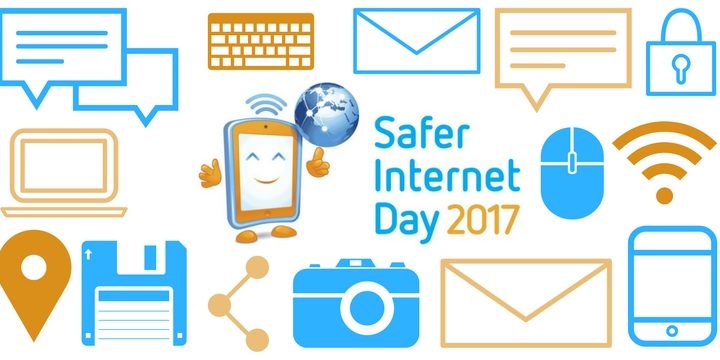On February 7, the World Day for Internet Safety was established: a way to raise awareness and bring out how little the web is safe with a focus on the youngest. This is an initiative shared by a hundred countries around the world. In Italy the project is coordinated by the Generazioni Connesse portal which has organized many dedicated events (round tables, projects, debates) for today.
There are many risks that are run by surfing the Internet and that are also hidden behind operations that take place every day. According to a recent survey conducted by Microsoft (“Digital Civility Index“) in 14 developed countries, the most frequent risk for surfers is that of “unwanted contact” via social networking or chat, followed by trolling, a practice consisting of sending provocative, irritating, off-topic or simply nonsensical messages, with the aim of disrupting communication and stirring up tempers. Obviously, sexting, or receiving unsolicited erotic material, should not be underestimated. In front of these unpleasant events Microsoft underlines the necessity of an ad-hoc civic education, able to teach how to live well with others on the net, starting from the youngest, since the under 20s now spend many hours on the web.
Awareness of the risks and dangers mentioned above is however increasing among the youngest who show to be, among other things, more willing than adults to share their negative online experiences, as well as being more informed than their own parents on issues such as cyberbullying and cyber crime.
But when it comes to cyber crime, not even the most experienced user can consider themselves fully protected from this threat. The situation then becomes more intricate when you consider that cyber crimes vary from nation to nation. There are, of course, “universal” rules that allow us to breathe a few sighs of relief.
- First and foremost, we must mention the adoption of a good antivirus: it is not only a prerogative of computer use, but it is also advisable to have antivirus apps on smartphones and tablets.
- The password is, after antivirus, the most important protection for our devices and documents. Unfortunately, the culture of using “secure” passwords, i.e. those that meet certain criteria, is not yet widespread. First of all, it’s good to use a different password for each account created; the password must also have at least 8 characters that include lower and upper case letters, numbers and special characters. Do not use words associated with our person but rather go for non-existent words. Finally, it’s good practice to change passwords regularly, especially for your email inbox and home banking accounts.
- Updates follow: operations that we often tend to postpone and that if neglected can facilitate the entry of malware.
- In Italy, the main threat is represented by emails containing infected links and fake requests for information that can lead to the well-known ransomware. In case of suspicious emails or emails with unusual attachments, run at least a couple of checks with your antivirus or simply delete it!
- Ransomware can also creep in as a result of downloading add-ons through apps, toolbars and advertisements. A first symptom you may experience in such cases is an almost immediate slowdown of your pc. To avoid the installation of unwanted components, simply do not download a program using the default settings; better check file by file what you are adding to your computer.
- Sharing files via storage media such as USB sticks can also be dangerous: in case of a virus it would be equivalent to passing a used handkerchief from a cold person to a healthy person. It is good practice in this case to run a scan of the device before opening the contained files.

